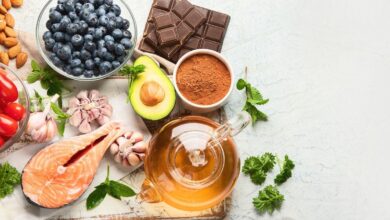Pumpkin Seeds Benefits: Your Guide to Better Health
Immune System Support
Pumpkin seeds are a natural source of zinc, key for a healthy immune system. Their immunomodulatory effects help keep the immune system strong.
“Pumpkin seeds are a true powerhouse when it comes to promoting overall health.”
Adding pumpkin seeds to your diet can boost your health. They fight inflammation, prevent diseases, and boost your immune system. Plus, they taste delicious.
Heart Health and Blood Pressure Management
Pumpkin seeds are packed with nutrients that help your heart and manage blood pressure. They are rich in magnesium, which is key for blood pressure control. Eating foods high in magnesium can lower the risk of heart disease and stroke.
The antioxidants in pumpkin seeds also boost heart health. These antioxidants increase nitric oxide, making blood vessels flexible and healthy. This improves blood flow and reduces heart problems, supporting overall heart health.
Research shows that pumpkin seeds can help manage blood pressure. The pumpkin seed magnesium and other nutrients help keep blood pressure in check.
To get the heart benefits of pumpkin seeds, add them to your meals and snacks. Sprinkle them on salads, mix into baked goods, or enjoy as a crunchy snack. Regularly eating pumpkin seeds can improve your heart health and overall well-being.
Prostate and Urinary Health Benefits
Pumpkin seeds are known for their health benefits, especially for prostate and urinary health. They are packed with zinc, a key mineral for prostate health. Studies show they can help with benign prostatic hyperplasia (BPH), a common issue in older men.
Impact on BPH Symptoms
A 2022 study found that pumpkin seed extract can help with BPH symptoms. It was taken twice a day and showed great results. The zinc and anti-inflammatory properties in the seeds are thought to be the reason.
Bladder Health Improvements
Pumpkin seed oil may also help with overactive bladder. Its unique compounds might help control bladder function and reduce irritation. This can offer relief for those with urinary incontinence or similar problems.
Men’s Sexual Health Benefits
Pumpkin seeds are also good for male fertility due to their zinc content. Zinc is important for sperm quality and quantity. This makes pumpkin seeds a great addition to a man’s diet for better reproductive health.
Adding pumpkin seeds to your diet is a natural way to boost urinary and sexual health. You can roast them, add them to salads, or mix them into other dishes. They are a nutritious choice for men’s health.
Sleep Quality and Mental Well-being
Pumpkin seeds are a natural source of tryptophan, an amino acid that promotes sleep. They also contain zinc, copper, and pumpkin seed magnesium. These nutrients can help improve sleep duration and quality. Magnesium in pumpkin seeds benefits may also reduce stress and anxiety, common causes of insomnia.
Studies show that sleep disorders and insomnia affect up to 20% of adults. Work stress, loss of a loved one, and shift work can harm sleep quality. Genetics and environment also influence sleep needs and patterns.
Insomnia is linked to health issues like asthma, hypertension, and type 2 diabetes. But, cognitive behavioral therapy and dietary changes can help. Adding pumpkin seeds benefits, like magnesium, can improve sleep and mental health.
| Sleep Quality Factors | Impact |
|---|---|
| Tryptophan in pumpkin seeds | Promotes sleep |
| Magnesium in pumpkin seeds | Reduces stress and anxiety |
| Zinc, copper, and selenium in pumpkin seeds | Affects sleep duration and quality |
Adding pumpkin seeds benefits to your diet can naturally improve sleep and mental health.
Antioxidant Properties and Cancer Prevention
Pumpkin seeds are packed with antioxidants that protect cells from harm. They may slow down or stop the growth of cancer cells. This is because of their high antioxidant levels, but more research is needed.
Role in Fighting Free Radicals
The antioxidants in pumpkin seeds fight off free radicals. These harmful molecules can damage cells and increase cancer risk. By stopping free radicals, pumpkin seeds may lower the risk of several cancers.
Cancer-Fighting Potential
Studies suggest pumpkin seeds can lower cancer risk. They contain beta-carotene and vitamin A, which protect against certain cancers. Pumpkin seeds also have phytoestrogens that may help prevent breast cancer.
While the evidence is promising, more research is needed. Still, adding pumpkin seeds to your diet can boost your health. They are a great source of antioxidants.
“Pumpkin seeds are a powerhouse of antioxidants that may play a significant role in cancer prevention and overall health.”
Bone Health and Mineral Content
Pumpkin seeds are packed with minerals that help keep bones strong. Pumpkin seed magnesium is key for bone growth. Studies link more magnesium to denser bones, making pumpkin seeds great for bone health.
Pumpkin seeds also have phosphorus, calcium, and zinc. These minerals boost bone strength. They help prevent osteoporosis, especially in women after menopause.
- Pumpkin seeds are a excellent source of magnesium, a crucial mineral for bone formation and density.
- The seeds also contain phosphorus, calcium, and zinc, which are essential for maintaining strong and healthy bones.
- Regular consumption of pumpkin seeds may help reduce the risk of osteoporosis, especially in postmenopausal women.
“Incorporating pumpkin seeds into your diet is an easy and delicious way to support your bone health and overall wellness.”
Adding pumpkin seed magnesium and other pumpkin seeds nutrients to your diet is good for bones. It helps prevent bone diseases. Enjoy pumpkin seeds for a healthy skeleton.
Weight Management and Digestive Benefits
Pumpkin seeds are not just tasty; they also help with weight and digestion. They are full of fiber, protein, and minerals. This makes them great for anyone watching their weight or focusing on health.
A 1-ounce (28-gram) serving of pumpkin seeds has 1.8 grams of fiber. This is 6% of what we need daily. Fiber helps us feel full and keeps blood sugar stable, aiding in weight control. Pumpkin seeds also have 9 grams of protein per ounce. This helps us stay full and keeps muscles strong while losing weight.
Pumpkin seeds are also good for our digestive system. Their fiber improves gut health, helps with bowel movements, and supports good bacteria in the gut. This leads to better digestion and regular bowel movements.
Even though pumpkin seeds are nutritious, they are high in calories. A 1/2-cup (72-gram) serving without shells has about 415 calories and 35 grams of fat. It’s important to eat them in moderation to help with weight management.
To get the most from pumpkin seeds, roast or soak them. This reduces phytic acid, which can block vitamin and mineral absorption. Enjoy them as a snack, add them to salads, or use them in various dishes. This will help you reach your weight and digestive health goals.
| Nutrient | Amount per 1 oz (28g) of Pumpkin Seeds |
|---|---|
| Calories | 163 |
| Total Fat | 14g |
| Saturated Fat | 2.4g |
| Carbohydrates | 4g |
| Fiber | 2g |
| Protein | 9g |
| Magnesium | 156mg |
| Zinc | 2mg |
| Iron | 2mg |
Pumpkin seeds are packed with fiber, protein, and minerals. They are great for weight management and digestive health. Adding them to your diet can help you feel full, regulate blood sugar, and improve gut function. This supports your journey to better health.
Proper Storage and Preparation Methods
Enjoying pumpkin seeds’ health benefits starts with the right storage and preparation. These seeds are great raw, roasted, or in many dishes. To keep them fresh and tasty, follow these tips.
Roasting Techniques
Roasting pumpkin seeds boosts their taste and texture. Rinse and dry the seeds, then mix with olive oil and seasonings. Roast at 250°F (121°C) for 10-15 minutes, stirring often, until they’re fragrant and lightly browned.
Or, microwave them in 2-minute bursts, stirring between each, until toasted.
Storage Guidelines
Keep pumpkin seeds fresh by storing them in an airtight container. Store them in a cool, dry, dark place. Raw seeds last up to 6 months, while roasted ones stay fresh for 2 weeks in the fridge.
For longer storage, freeze them for up to a year. This keeps their pumpkin seeds benefits and pumpkin seed oil benefits intact.
Serving Suggestions
Pumpkin seeds are versatile and delicious. Enjoy them plain or add them to various dishes. Sprinkle them on salads, yogurt, oatmeal, or baked goods for a crunchy touch.
They’re also great on soups, stews, and roasted veggies. Remember, they’re calorie-rich, so eat 1 ounce (about a quarter-cup) daily.
FAQ
What are the main health benefits of pumpkin seeds?
Pumpkin seeds are packed with protein, fiber, and healthy fats. They also have vitamins and minerals. These nutrients help fight inflammation, prevent chronic diseases, and boost the immune system. They might even help fight cancer.
How do pumpkin seeds impact heart health and blood pressure?
Pumpkin seeds are full of magnesium, which lowers blood pressure and keeps blood vessels healthy. Their antioxidants also improve blood flow. This reduces the risk of heart and circulation problems.
What are the potential benefits of pumpkin seeds for prostate and urinary health?
Pumpkin seeds may help with benign prostatic hyperplasia (BPH) and prostate health. They also help with overactive bladder. The zinc in them can boost male fertility.
How can pumpkin seeds impact sleep quality and mental well-being?
Pumpkin seeds have tryptophan, which helps you sleep. They also have magnesium, zinc, and antioxidants. These nutrients can reduce stress and anxiety, leading to better sleep.
Do pumpkin seeds have anti-cancer properties?
Studies show pumpkin seeds might slow down breast and prostate cancer cell growth. This is thanks to their antioxidants. But, more research is needed to confirm this in humans.
How do pumpkin seeds support bone health?
Pumpkin seeds are rich in magnesium, which is key for bone health. They also have phosphorus, calcium, and zinc. Eating more magnesium can increase bone density.
Can pumpkin seeds aid in weight management?
Yes, pumpkin seeds are high in fiber and protein. This can make you feel full and help with weight management. They also help keep blood sugar levels healthy.
How should pumpkin seeds be prepared and stored?
Rinse and soak pumpkin seeds to remove stringy flesh. You can eat them raw or roast them at 300°F for 30-40 minutes with olive oil and seasonings. Store them in a cool, dark place to prevent spoilage. Refrigeration or freezing can keep them fresh longer.




